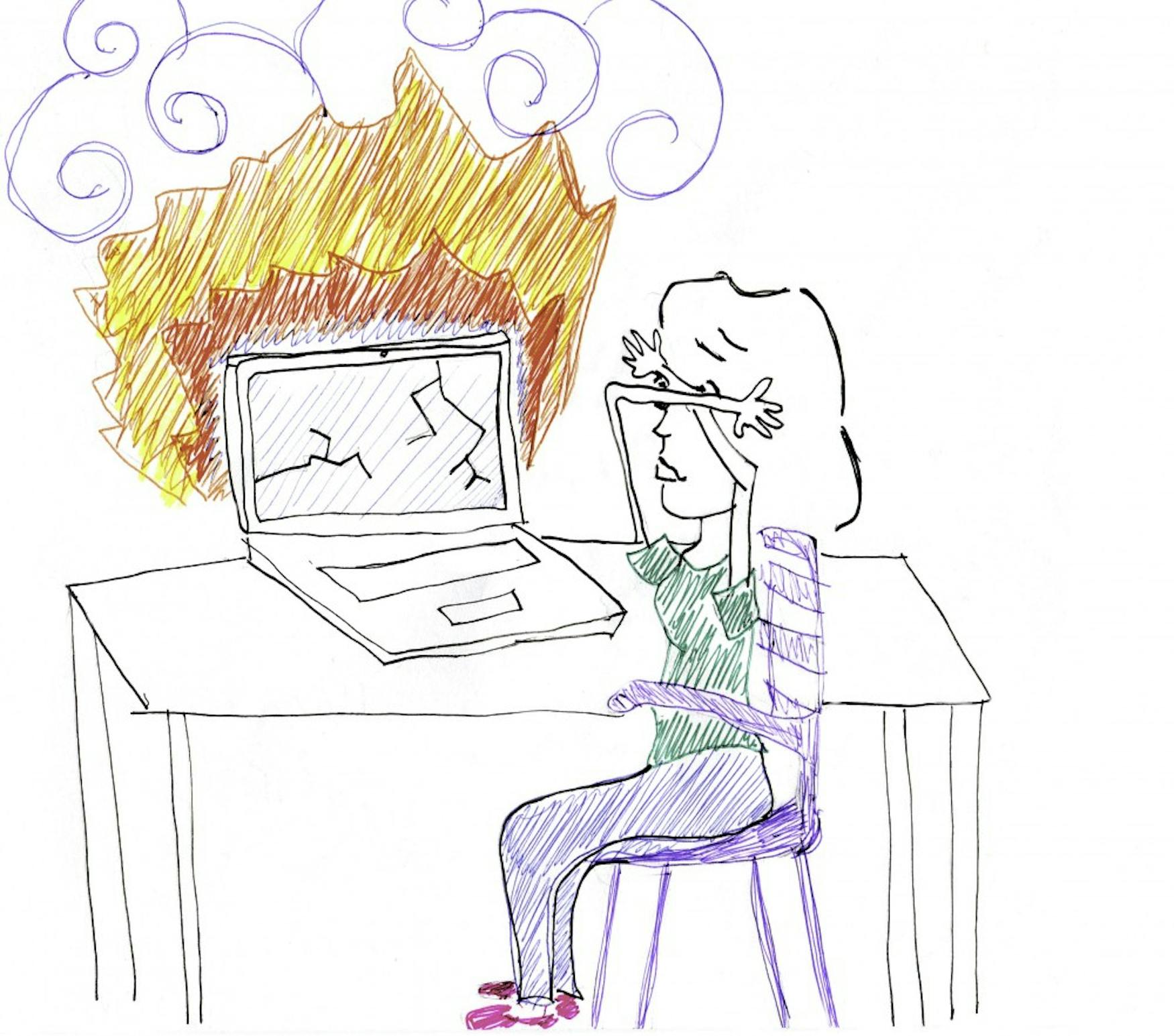Take a break from all the depressing news and try to enjoy life
The news can feel like a thick drink I’m forcing down before breakfast every morning. My classes start early, and morning hours beforehand may be better spent splayed out on a yoga mat or listening to classical music. It seems that some days, I forego mindfulness and mental health in favor of reading news that is the same but different every day; it is a Groundhog Day of X with a side of Y on the front page of Z week in and week out. Can’t I pass on this? Because I certainly cannot blame any one of the people I know that have completely cut off their subscription to the daily sludge of violence, hatred and fear on planet Earth 2019. Despite this, here is why I make an effort to read the news.
The argument against news is strong enough to make me reconsider the benefits of staying informed. According to a January 2018 article in Time Magazine, around half of American adults report that the news is stressful and can lead to anxiety and sleep loss. An April 2013 article in The Guardian concurs with Time in saying that reading the news can lead to heightened cortisol levels and other stress related hormones. In this sense, reading the news can be physically harmful to some readers. Be that as it may, the solution might not be to stop reading the news entirely, as Rolf Dobelli argues in the aforementioned Guardian article. “We are not rational enough to be exposed to the press. Watching an airplane crash on television is going to change your attitude toward that risk, regardless of its real probability,” says Dobelli. The news is so often sensationalist to the point where it cultivates fear. Simply put, the event becomes more important than the person. In one sense, it makes me feel replaceable. In another, removal of the human element makes me feel powerless, because through the lens of the media, tragedy and injustice in the world is as inevitable as the rotation of the earth.
The greatest help to me has been finding news organizations that report about the people who are making efforts to fix the problems we, as a collective, face. In my experience, news magazines like 60 Minutes and the PBS Newshour are so excellent because they purposely structure their programs around individuals and their work for a greater good. It is easy to forget about all the good work that people are doing because the scale of every problem is so monstrous.
It is difficult to grow up in a time with such high octane news. It seems that my generation has been indoctrinated in a school of apathy towards the worst the world has to offer. Thus, the news puts me in a comparative mindset when subjected to atrocities across the world. My brain rationalizes this as some sort of equation or logical problem, where X isn’t as bad as Y, thus X isn’t as important. In the same way, how can I ever make the most of what I do have and give to others if I’m always consumed with the due sadness of bigger problems that are always present in the world beyond me? I am guilty of the age old dilemma of “because the problems of the world are so much worse than mine, none of the issues in my life matter.” It is something I will never figure out. Going to a private university and having a family to go home to with readily available food and water are luxuries I enjoy, and are not taken for granted. However, there are always people with better and worse situations than myself, and the best I can do is to make the most of the opportunities presented to me.
Read local news. Both garden variety citizens and media outlets need to do a better job at recognizing the importance of news that isn’t trending. A healthy news diet is a mixture of local, national and international news. When I forget about news in the place I have planted my feet, more global news becomes even more abstract and less tangible. Therefore, I encourage the reader to pick up a copy of the Justice next week. In my case, a diet of warmblooded news has fended off the infection of sensationalism and reaction mongering we as Americans are so used to.
On another front, the problem sometimes isn’t even the news itself. It may be the way that we as a country are consuming and absorbing the information. In this sense, Time cites Professor Chris Peters at Aalborg University in Copenhagen. He says, “We shouldn’t focus on the amount of news we consume each day, but rather on the ways in which we engage with news in relation to our everyday lives and the people who fill them.” Reading the paper or listening to NPR in the morning is a task that leaves me feeling powerless some of the time. The same goes for discussing what I read and listen to. It is fairly common for me to realize how doomed the world is after a long conversation with a friend about global affairs, about the famine in Yemen or about Washington DC. But as I grow, I realize that as a young person I am constantly focusing on the things I wish I could do, but cannot because of my age and my position. The fact remains that from within my dorm room I cannot reorganize the Chinese government, but right now, I can do a bit of my part and write an article. As it stands, I might be Shawshank Redemption’s Andy Dufresne, digging my way out of a prison cell with a hammer; but at least in 19 years or more it might amount to something meaningful.



Please note All comments are eligible for publication in The Justice.